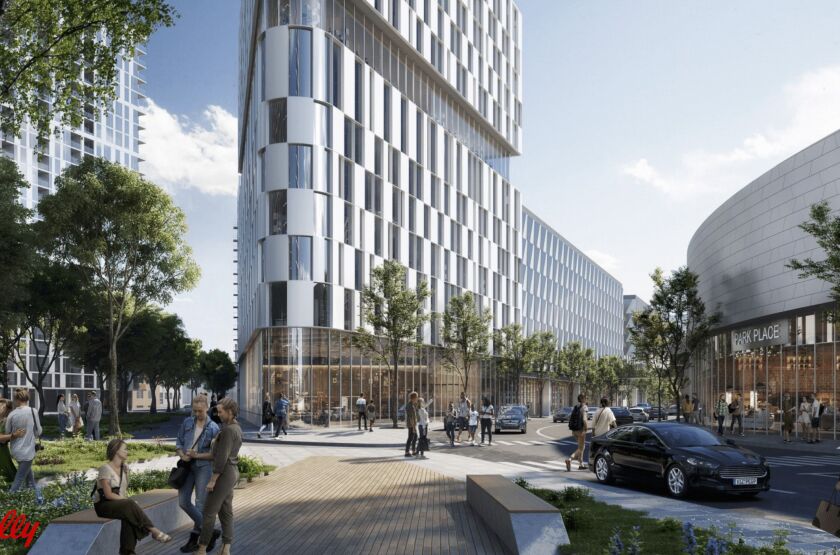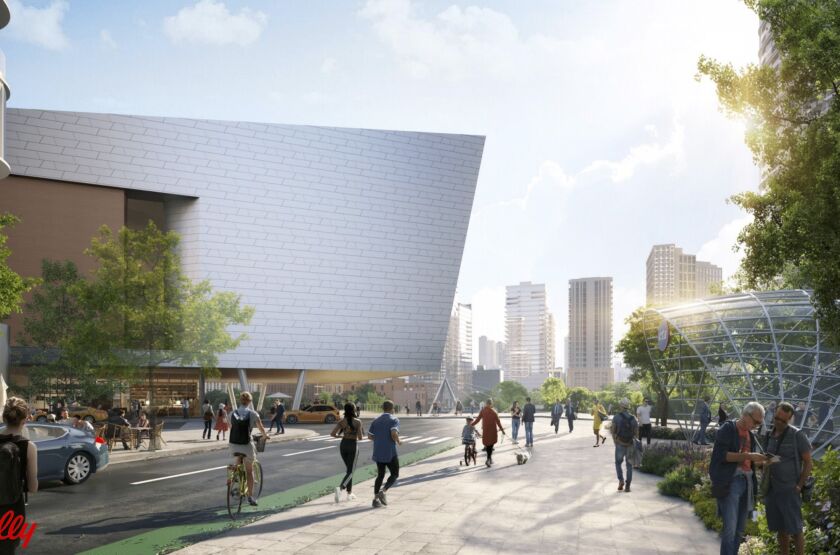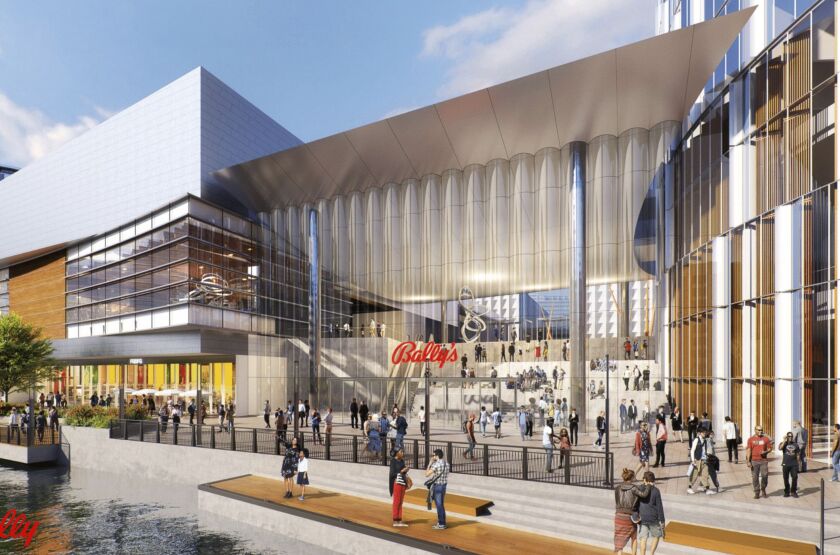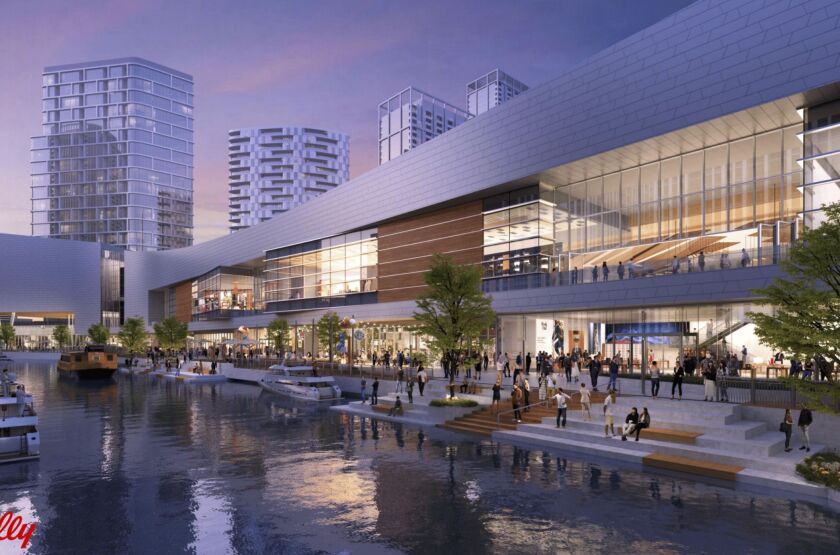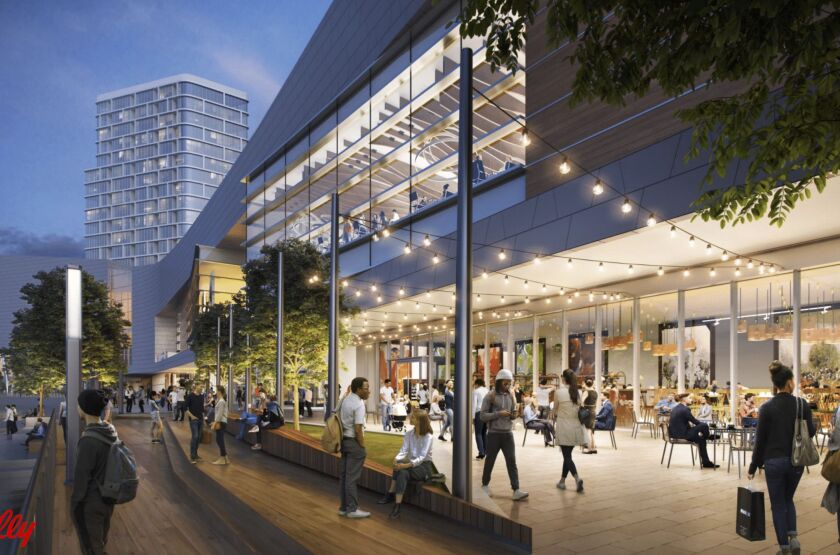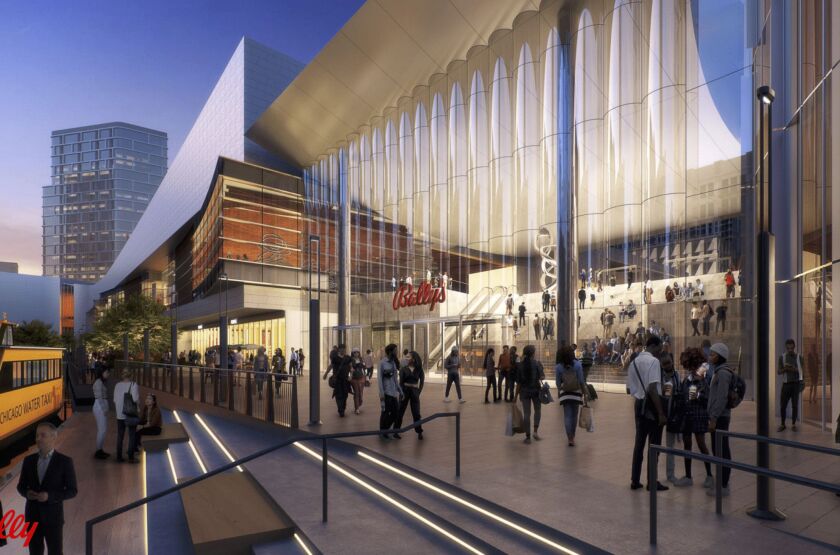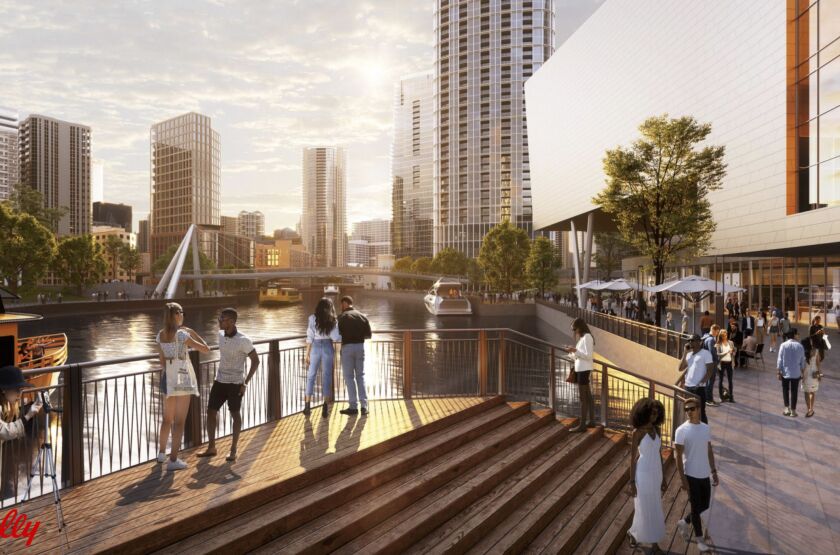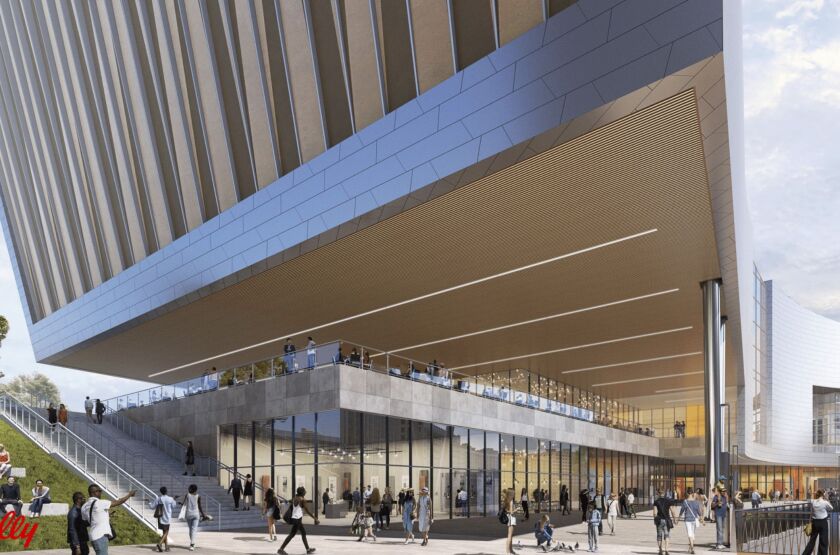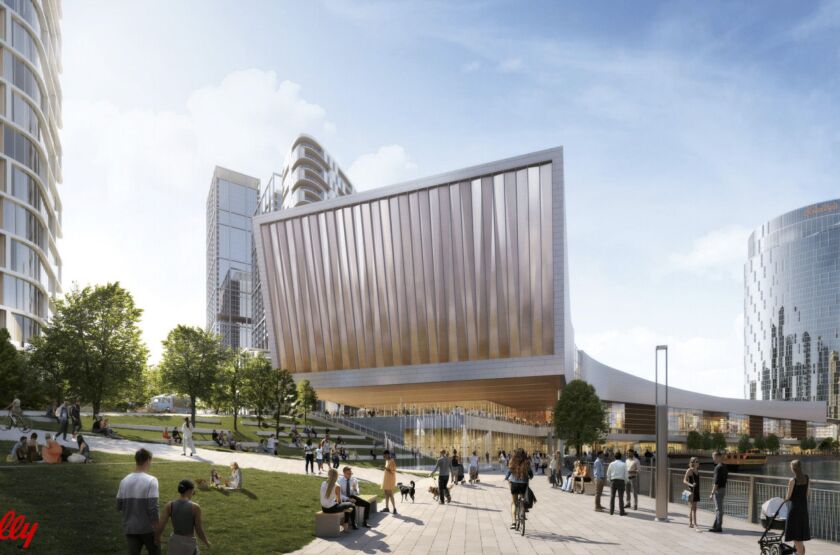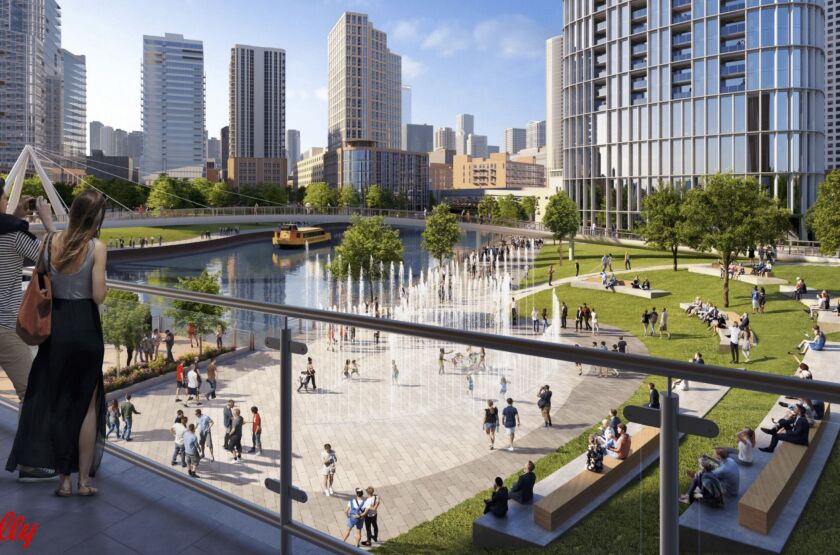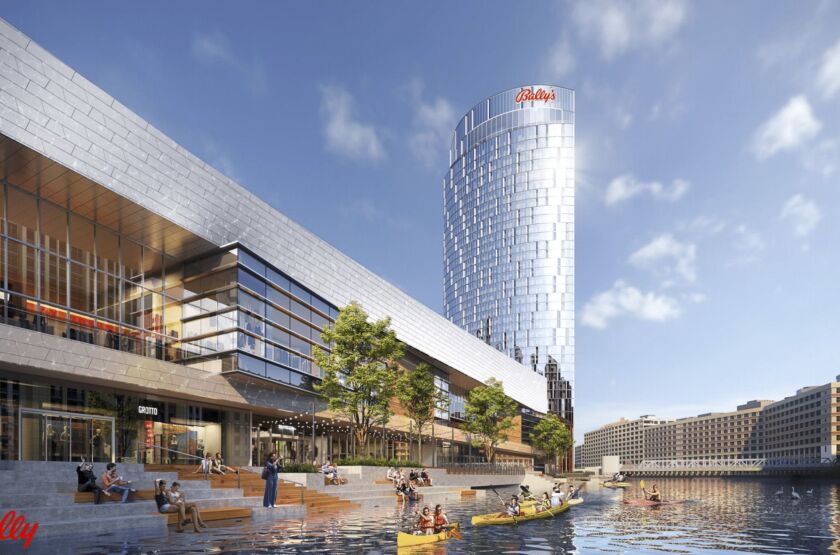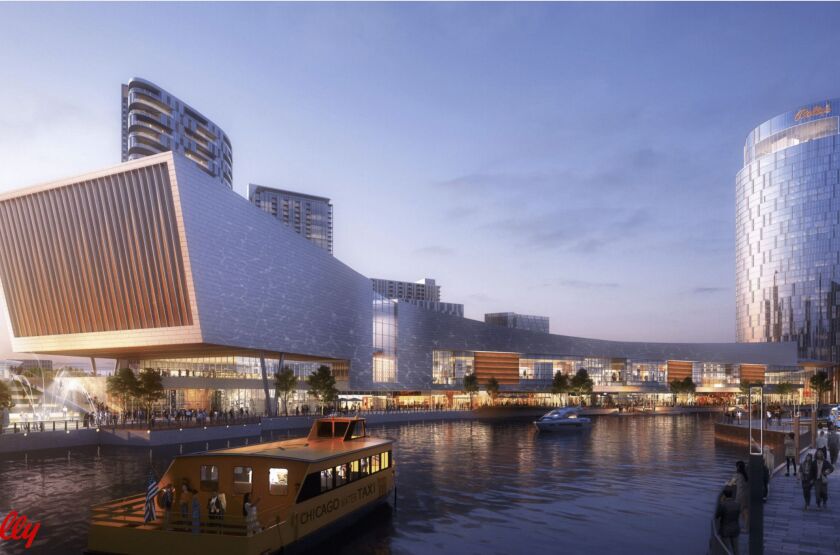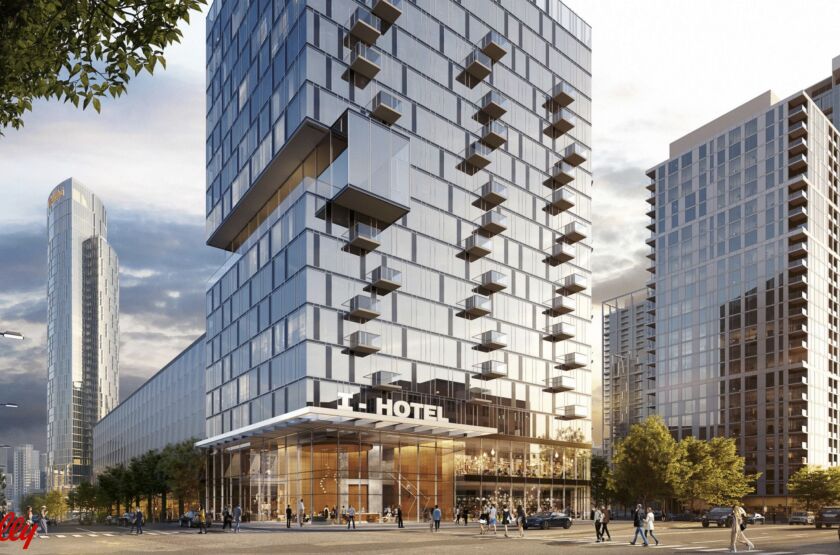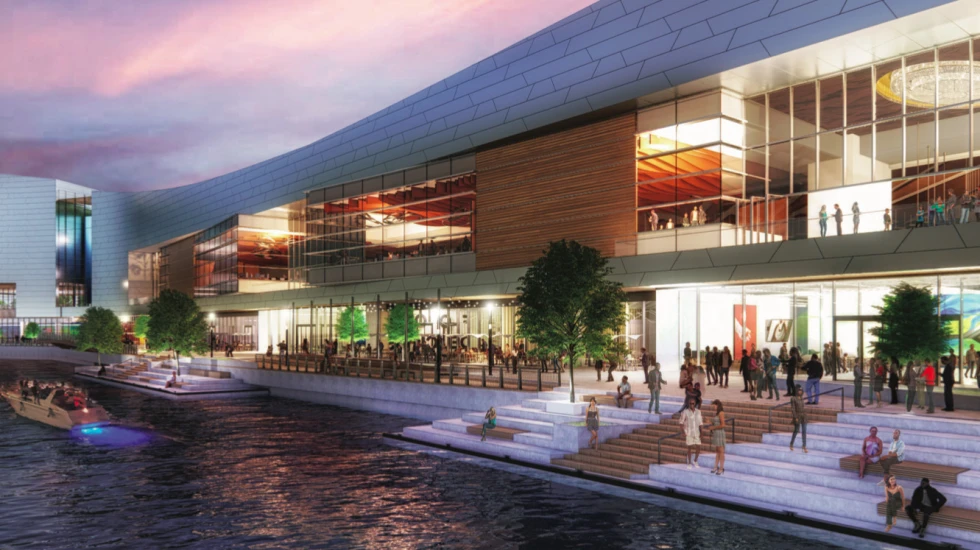
Mayor Lori Lightfoot has chosen the political path of least resistance by putting her chips on Bally’s River West bid for a Chicago casino.
But that doesn’t mean she’ll have an easy time parlaying that pick into a winning hand in the City Council. That takes 26 votes, and local Ald. Walter Burnett (27th) can cast only one.
Burnett may be willing to swallow the inconvenience of a casino in his ward, but he sure sounded this week like he’s in no mood to help the mayor round up those votes.
Analysis
“As far as I’m concerned, this is the mayor’s game. This is her thing. It didn’t come from the aldermen. It’s not aldermanic prerogative. This is coming from the top down to us,” he told the Chicago Sun-Times this week.
The legislative battle that lies ahead was foreshadowed by the backdrop the mayor chose for Thursday’s announcement: the Mid-America headquarters of the Carpenters Regional Council, whose members will help build the casino/entertainment complex.
Now that Bally’s has nailed down a labor agreement, including a promise to pay its unionized workforce a “living wage,” Lightfoot is counting on organized labor to help her muscle the site through the council.
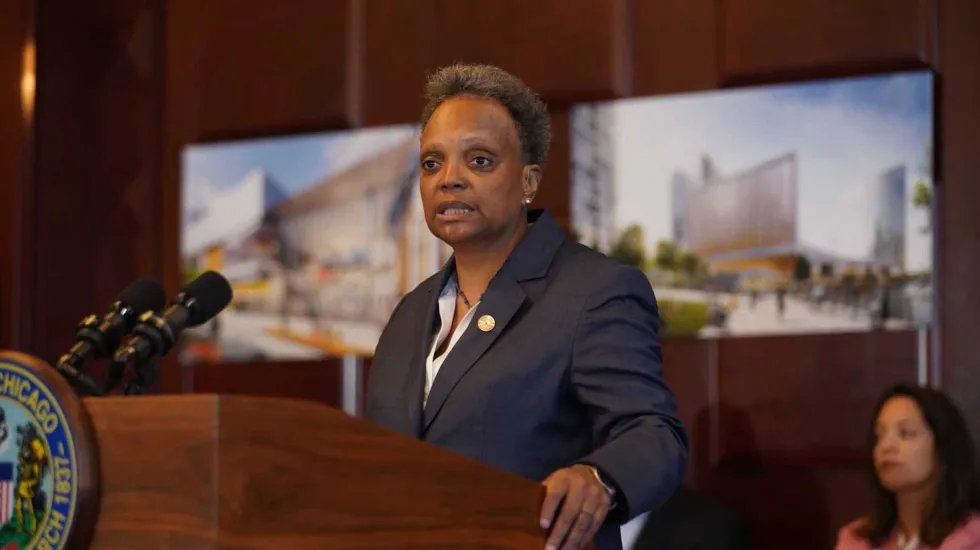
Union leaders will undoubtedly attempt to portray any alderperson who dares to oppose Bally’s plan as anti-union and anti-jobs.
They will further attempt to frame the argument the way Lightfoot and Burnett have: as a choice between Bally’s and a post-election property tax increase to save police and fire pensions.
“Who wants to pay more property taxes? I know I don’t. Mine increased substantially,” Burnett said during Thursday’s celebratory news conference.
Noting he was “not afraid” to support demolishing the Cabrini Green high-rises where he grew up, Burnett said, “I’m not afraid to have this casino built in my ward to help our police and firemen. ... They put their lives on the line for us every day.”
Ald. George Cardenas (12th), Lightfoot’s deputy floor leader, was asked to weigh the odds that downtown Alderpersons Brian Hopkins (2nd) and Brendan Reilly (42nd) can convince their colleagues to reject the mayor’s choice.
“I wouldn’t say ‘no chance.’ I just think the Council will see it — not as aldermanic prerogative, but as city prerogative,” Cardenas said.
“It’s one of the biggest decisions we’ve made probably in 50 years. I think we’ll have the support of the council because we’re talking about budgetary issues that affect the entire city — not just one ward.”
Hopkins admits he and Reilly face an “uphill fight” — but a “fight worth having.”
“The mayor does seem to manage to get 26 votes when she needs to. But this may be the time she doesn’t. This could easily be the high-visibility one she loses,” Hopkins said.
“City Council members who feel disrespected and dismissed after having their aldermanic authority undermined once again combined with the merits of the argument that seem to favor” the South Loop site known as the 78.
Lightfoot’s decision to go around the City Council committee she packed with her leadership team and supposedly empowered to make all decisions related to a Chicago casino is not sitting well, even with some of her closest allies.
That panel, led by Zoning Committee Chairman Tom Tunney (44th), has met only once.
“I know that we need to get it done. I just don’t like the way it’s getting done. You tell us to bake the cake, then you give us a cake already baked,” said Education Committee Chairman Michael Scott Jr. (24th), a mayoral ally.
“That doesn’t make sense. You ask for a transparent process. You create a committee. The committee asks valid questions. Then you give us one option without answering these questions and without us vetting them? How can I vote ‘yes’ on that? I can’t.”
In an email to the Sun-Times moments before the mayor’s announcement, Reilly said he was “incredibly disappointed” at Lightfoot’s decision to “short-circuit the deliberations” of the council’s casino committee.
He noted that “dozens of excellent questions were raised about the process and each of the potential sites” at the one hearing that was held and that answers to “most” but not all of those questions were sent to alderpersons late Wednesday.
“Now, less than 24 hours after receiving some of their answers to our questions, we are told the Administration has selected a casino finalist? Last week Chairman Tunney promised Casino Committee members there would be more hearings, more testimony and more opportunities to ask questions about each of the competing bids and locations. This selection runs afoul of those promises and flies in the face of transparency,” he wrote.
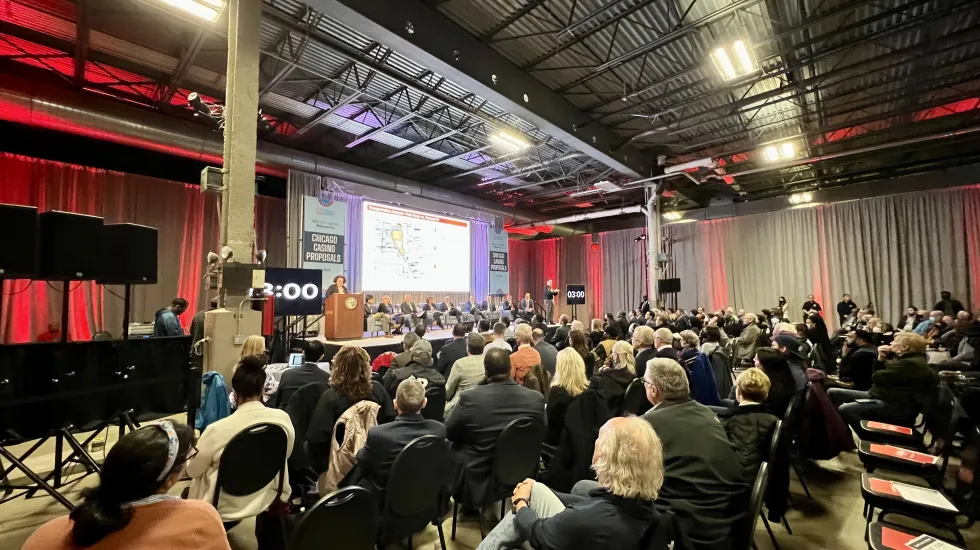
Reilly accused Lightfoot of presenting the City Council with a “false choice” between Bally’s River West and a pre-election property tax increase.
“This isn’t a debate over whether or not there will be Chicago casino revenue for our pensions. ... The real questions before the City Council are: 1) Is this a good deal for Chicago and 2) is this the right location for this once in a lifetime opportunity?” Reilly wrote.
“There are many Council skeptics due to concerns about how the process has been run, appearances of preferential treatment, and unsatisfactory locations that we were left to consider.”
It’s not the first time Lightfoot has created a committee only to ignore its recommendations or even circumvented a legally-mandated selection process.
Lightfoot had her sights set on retired Dallas Police Chief David Brown from the moment she fired Police Supt. Eddie Johnson for “lying to me and lying to the public” about the circumstances surrounding the 2019 drinking and driving incident that left him slumped over the wheel of his police SUV near his Bridgeport home.
Lightfoot, as Police Board president, complained when its recommendations were ignored by Mayor Rahm Emanuel, saying then that the selection process “only has legitimacy if you follow it.”
But she ignored her own advice and chose Brown one day after the Police Board made public its list of three finalists. Lightfoot made certain the other two finalists had nowhere near Brown’s experience, making the choice of Brown appear obvious.
And just this week, the mayor hinted strongly she will ignore a controversial recommendation from her own monuments committee to permanently sideline statues of Christopher Columbus in Grant and Arrigo parks and remove the Balbo Monument from Burnham Park.
Hopkins’ argument against Bally’s is two-fold: inexperience and logistics.
He argues that the company has never built a big-city casino from the ground up and maintains traffic nightmares at Chicago and Halsted cannot be overcome.
“It’s already a traffic bottleneck under the best of conditions. To add a casino at that location — it just won’t work. Traffic engineers are not miracle workers,” he said.
Hopkins hopes to strengthen his argument with a full-throated endorsement of the 78.
While that site has its own local opposition and traffic challenges, Hopkins believes they are more easily overcome and that the South Loop needs the economic boost more.
Hopkins can only hope that, when he says, “Charge!” Reilly and the River North Association will follow, trying to hand Lightfoot what would be a stunning political defeat.
“If Reilly does stay with me on this, it increases the chances that we can get to 26 for an alternative to the mayor’s recommendation,” said Hopkins, mulling his own race for mayor against Lightfoot.
“If it’s gonna happen, this is the time. Her popularity has never been lower citywide. I don’t know that you really want to keep having your wagon hitched to her horse at this time. There’s some real doubt in peoples’ minds as to whether she can win a second term or not. So you might not want to go down with the ship.”
Lightfoot said Thursday she is “more than confident” she will have a “good solid majority” for her site choice.
“There are gonna be some that vote ‘no.’ And that’s how the world turns,” she said.
“In every process, there are winners and losers. And this one’s no different. And some of what you’re hearing is people who staked their allegiance with proposals that didn’t make it through to the finalists. It’s typical of folks who weren’t successful to attack the process.”
The mayor pushed back hard against those who have branded the casino committee a “sham.” Although that committee met only once, Lightfoot said there have been scores of briefings and public hearings on the Chicago casino.
“Anyone who tells you differently has been asleep for the past few months,” she said.
“In this administration ... the process matters. Transparency, engagement, inclusion matter. They’re not just window dressing for us. There’s been ample opportunity for any member who wanted to to be engaged and understand the permutations of this process.”
